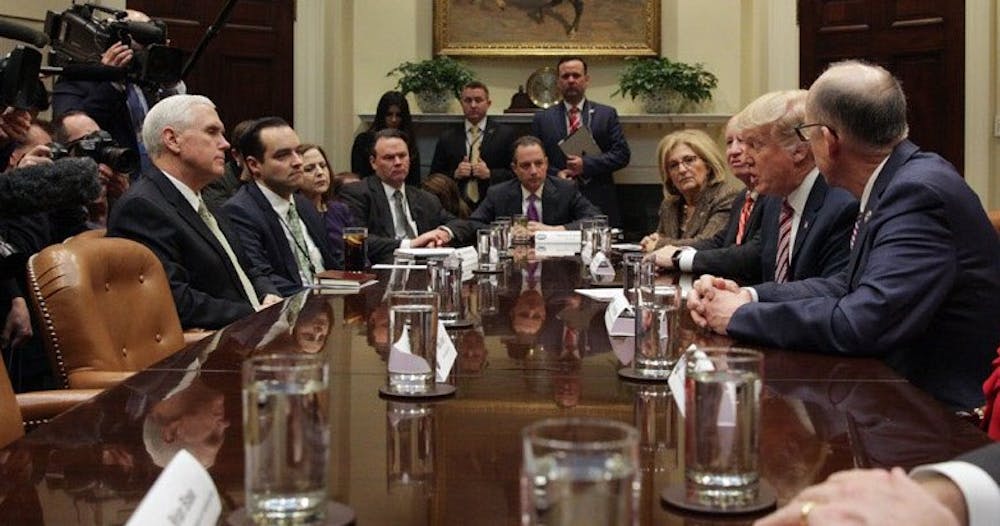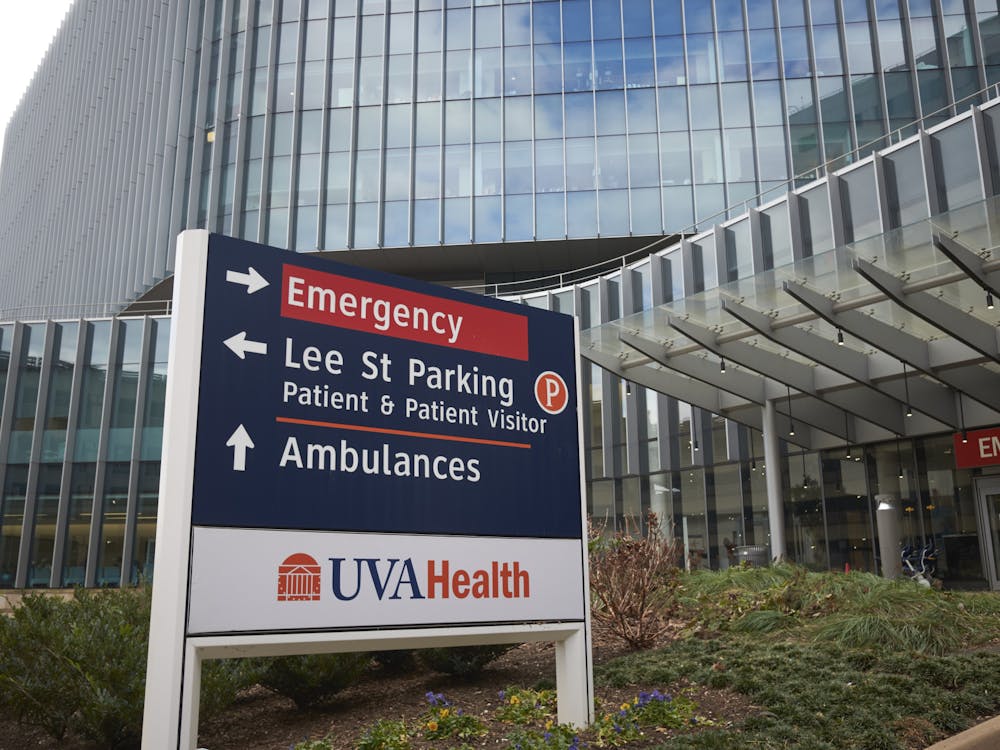The Virginia Hospital & Healthcare Association recently released a statement directed towards members of Congress regarding the proposed American Health Care Act currently under review in the House of Representatives.
The statement addresses not only grievances but also commends some of the proposals in the bill. VHHA Vice President of Communications Julian Walker said there are some positive aspects of the act.
According to Walker, the VHHA appreciates the proposal to simultaneously repeal the current Affordable Care Act — or Obamacare — and implement the new AHCA. Furthermore, the AHCA retains the popular provision allowing children to remain under their parents’ insurance coverage until the age of 26.
There are, however, several issues with the proposed health care plan. Carolyn Engelhard, director of the health policy program in the School of Medicine’s Department of Public Health Sciences, said 24 million people are projected to lose health insurance over the next 10 years with the new bill.
“If millions of people lose health insurance, I think we can assume that they would not have access to as high quality of care as they would if they had health insurance,” Engelhard said.
The major differences between the ACA and the proposed AHCA lie in the handling of Medicaid as well as tax return credits.
Currently, the federal government hasn’t set any limits on the amount of Medicaid funding they will give states. However, the AHCA is trying to implement per capita allotted Medicaid funds based on 2016 spending by individual states.
The use of 2016 Medicaid federal funding as a baseline limits the amount of federal funding states will receive. Under the ACA, states were given the option to expand their Medicaid programs, and 31 states — referred to as expansion states — did so and received $72 billion of additional funding.
Virginia — a non-expansion state — will only receive about $87-88 million a year for the next five years. If Virginia had expanded its Medicaid program, however, it would have received about $3 billion additional funding annually.
“So because the American Health Care Act — at least in the short term — continues that enhanced level of federal funding for Medicaid expansion states — which Virginia is not — there’s also some concern for funding equity in that regard as well,” Walker said.
Another key difference between the ACA and the AHCA is the use of subsidies. While the ACA allowed subsidies — money given by the government to lower the cost of insurance coverage — to be based on income and geography, the AHCA takes a tax credit approach. The subsidy under the ACA was given to help people buy insurance, while tax credits under the AHCA would take the form of a rebate received after filing taxes.
While it is difficult to ascertain the exact effects of the AHCA on college students’ lives — as the bill is still being processed through committees —Engelhard said changes regarding reproductive health are likely.
“I think [the AHCA] could really affect [University] students if it went from not having to pay anything for birth control pills, IUDs or whatever to actually having then a copay that might make it less affordable,” Engelhard said. “And also I would say under the American Health Care Act, they would defund Planned Parenthood for a year.”
The VHHA has both released a public statement and written letters to Virginia congressional members expressing problems with the AHCA as currently proposed. According to Walker, the implementation of the AHCA can have a significant impact on all of society.
“There are several concerns that we have about the potential impact [of the AHCA] on health care access and our health care delivery system, and because we’re all consumers of healthcare — whether you’re a college student, a middle-aged adult, a young child or a senior citizen — any policy that changes the health care system is going to have impacts across the continuum of society from the youngest to the oldest,” Walker said.





